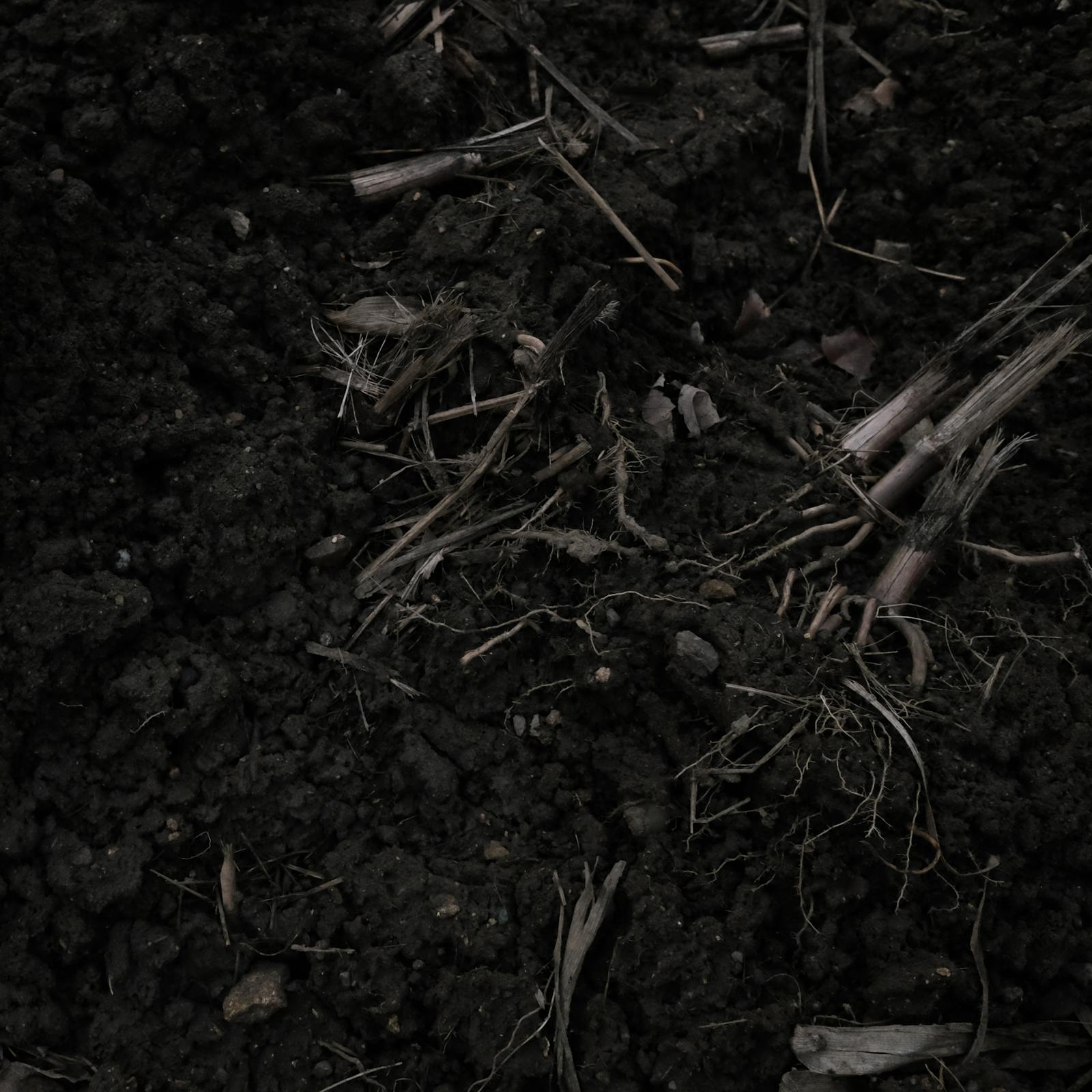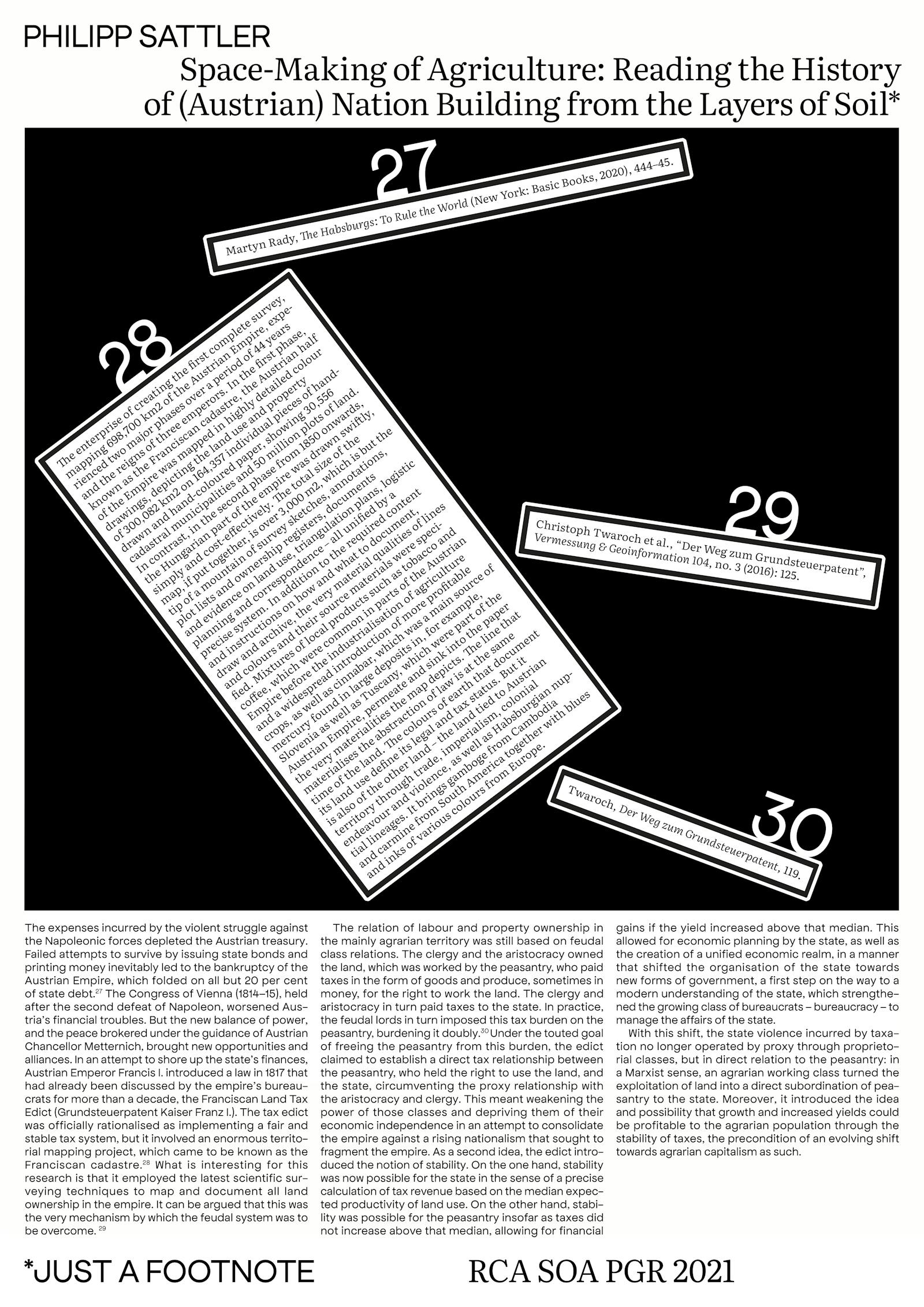Philipp Sattler
Space-Making of Agriculture: Reading History of (Austrian) Nation Building from the Layers of Soil

Fascist Soils (2021), Philipp Sattler
Research abstract
The research project aims to investigate the manifold layers of soil, following structural changes in agricultural and rural property regimes in Austria. 86% of property in Austria is based on agricultural land use in various forms. This thesis examines the impact of legal changes on land use and land ownership, their ideological and cultural framing, as well as the technological development in agricultural practices that partake in specific space-making through the transformation of the ground.
Taking Aflenz an der Sulm – a small peri-urban town in Southern Austria, close to the Slovenian border, as its point of departure, the research project seeks to unpack the manifold complexities and entanglements, i.e processes of commodification, agro-capitalist extraction, the worlds of law and fascisms, in the very materiality of its landscape.
From the micro-history of such a rural area, the research opens layers of laws, ideologies and symbolic representations that form an anthropocentric understanding of land that enables ground to be turned into property (against the European context it originates from). Particularly engaging with the agrarian and agricultural world of the peasant, its regimes of ownership and production, becomes the lens through which to read the productive landscape, be it a field, orchard or vineyard but also quarries, mines, and factories - the forms of production relegated from the urban to the rural.
The life worlds of rural Austria will on the surface tell a story of the development of farming and the peasant, but digging deeper uncovers the traumas of wars and borders, the permeation of soil with chemical and technological advancement, the shifts in ecologies through extractivism and scientification of production. Entangled in questions of class, race, gender, labour, nationality and forms of state, the research will follow the rise and fall of empires, and the impact of regimes of ownership generated not just on contemporary Austria but Europe at large. From the drawing of a map, to the impact of a speech, to the idea of a union, the research will question how the material perspective and minute acts can impact large scale and structural shifts in society. And how the relationship of agriculture, capitalism and scientific advancement stand central within the traumatic landscape of European history.
Footnote statement
As part of the Research Biennale, each student from the PhD cohort at the School of Architecture selects to interrogate a “footnote” alongside an extract from the text of their thesis.
Biographical Note
Philipp Sattler is a researcher, artist, and writer with a background in Architecture, Construction Design and Economics, as well as English and American Studies. He is Assistant Professor at IZK - Institute for Contemporary Art, Faculty of Architecture, Graz University of Technology, and a PhD student at the Royal College of Art, School of Architecture, London. He is researching the material conditions and interactions of agriculture, property and law in relation to fascism and colonialism permeating European soil.
Sattler was co-convener, organizer, and moderator of the conference Life of Crops: Towards an Investigative Memorialization (2019) in the framework of the Aflenz Memorial in Becoming project, where he is a freelance project coordinator and researcher. He is a founding member of Das Gesellschaftliche Ding, a collective that operates the exhibiting and discursive space Annenstrasse 53, in Graz, Austria. He has been awarded the Mind The Gap - Award for Gender and Diversity Special Prize for his Master thesis “Portrait of the Bauer. On Architecture and Agronomy of Property” (2020).

Graphic design by Clem Rousset and Vidal Mateos, hereth.fr
